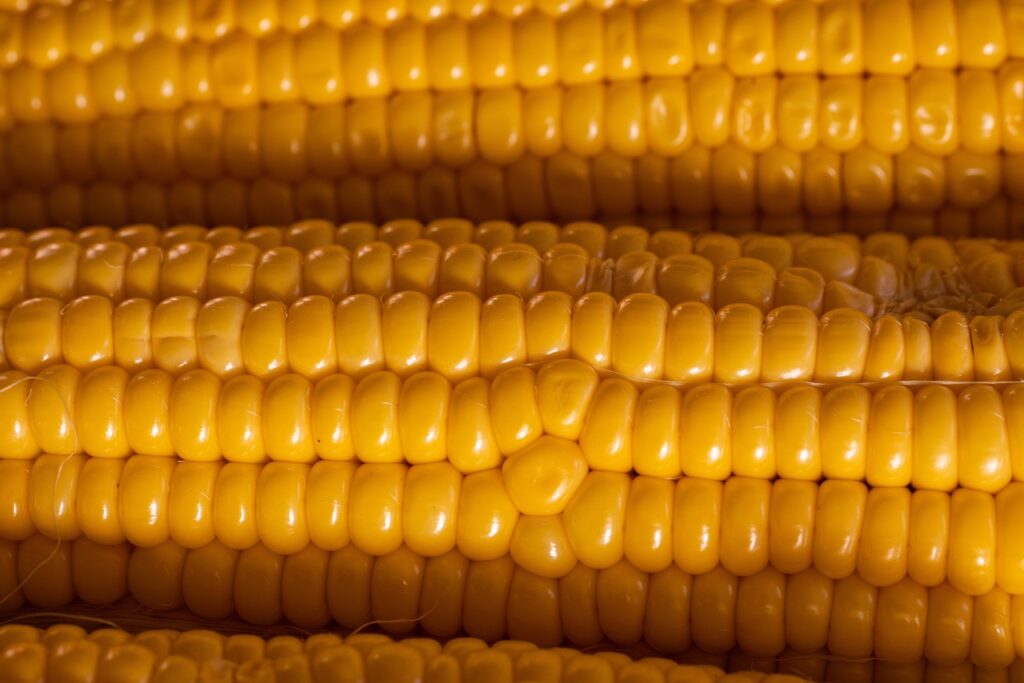Corn is a versatile and nutritious food that is part of the diet of many cultures around the world. Here are some of the healthy components that corn offers:
Carbohydrates: Corn is an excellent source of complex carbohydrates, which provides sustained energy for the body.
Fiber: Contains dietary fiber, which promotes intestinal transit and contributes to good digestive health.
Vitamins: Corn is rich in various vitamins, including vitamin B1 (thiamin), vitamin B5 (pantothenic acid), folate, vitamin C, and vitamin E.
Minerals: It is a good source of minerals such as magnesium, phosphorus and zinc.
Antioxidants: Corn contains antioxidants such as carotenoids, including lutein and zeaxanthin, which are beneficial for eye health.
Proteins: Although not a complete protein source, corn still provides some amount of this macronutrient.
Healthy Fats: Corn contains small amounts of healthy fats, including linoleic acid, a type of essential fatty acid.
Gluten-Free: Corn is naturally gluten-free, making it a suitable option for people with celiac disease or gluten sensitivity.
Cardiovascular Health Benefits: Some studies suggest that certain compounds in corn may have positive effects on heart health.
Helps reduce the risk of chronic diseases: A diet rich in fiber and antioxidants, such as one that includes corn, can help reduce the risk of certain chronic diseases, such as type 2 diabetes and some cardiovascular diseases.
In conclusion
However, it is important to remember that corn is usually most beneficial when eaten as part of a balanced and varied diet that includes other healthy foods such as fruits, vegetables, lean protein, and healthy fats. In addition, the preparation of the corn also plays an important role; it is preferable to cook it in a healthy way, such as boiling or roasting, instead of opting for more processed options that are high in fat or added sugar.

